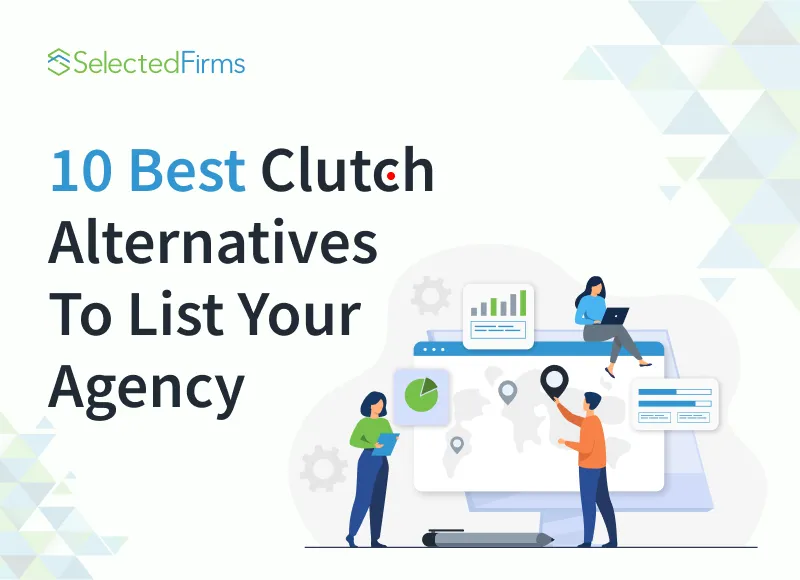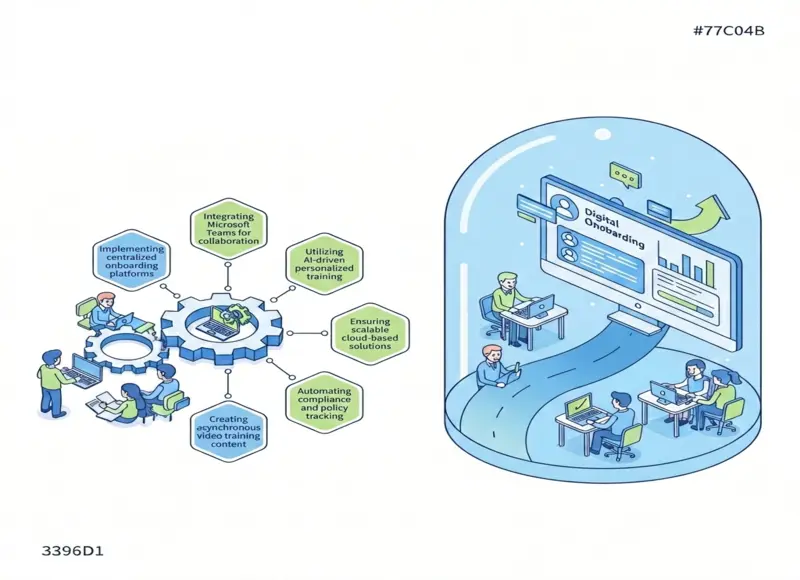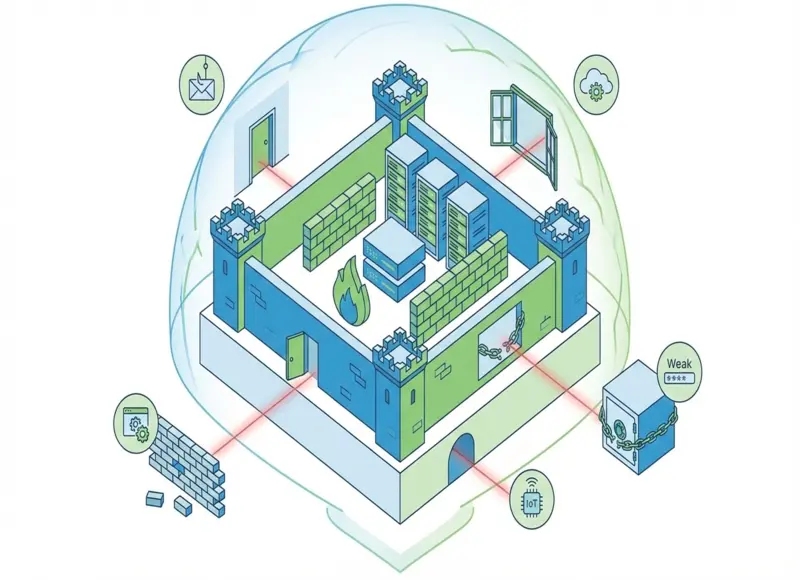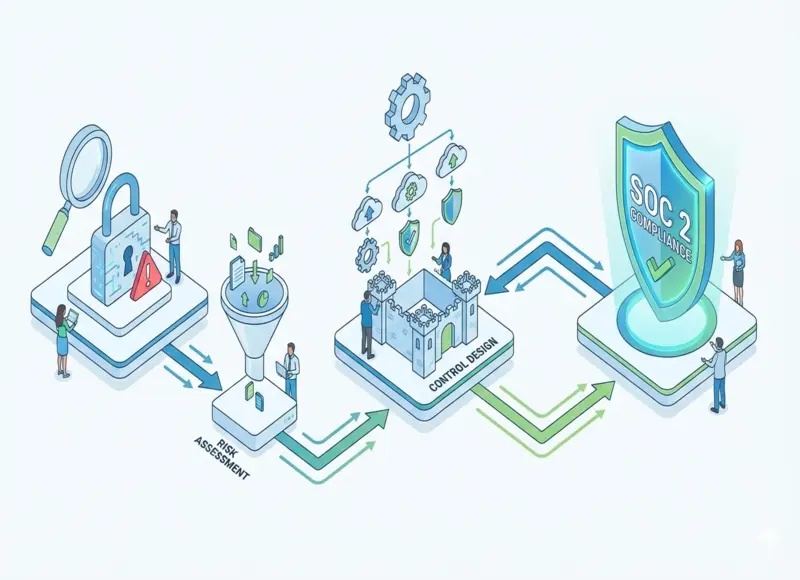Table of Contents
Discover the world of web scraping with this comprehensive guide of web scraping 101 ! Learn about its uses, benefits, and get a step-by-step how-to guide to get started.

Are you looking to get the most out of the internet? Web scraping can help. It's a process that allows you to extract vast amounts of data from many websites live on the web and utilize the information collected for any purpose.
But what's web scraping, how does it work, and why should you use it? This post will answer those questions and provide an easy-to-follow guide on how to start web scraping today. Read on.
Uses Of Web Scraping
Web scraping has numerous uses in various industries, from marketing to finance. It's a handy tool, allowing businesses and organizations to access data quickly and easily with minimal effort. That said, here are some of its potential applications:
For Market Research And Analysis
Businesses across all industries use a web scraping proxy to conduct market research and analysis.
With web scraping, it's possible to collect data from the internet quickly and accurately. This allows businesses to gain valuable insights into their target markets, competitors, customers, and others.
Web scraping can be used for a variety of tasks related to market research, including the following:
- Gaining competitive intelligence;
- Identifying new opportunities through competitor comparison analysis; and
- Examining pricing models and product offerings of competing companies.
These are just some examples of how businesses worldwide are utilizing web scraping API. Utilizing web scraping enables companies to get accurate data faster, allowing them to make informed decisions about their products, services, marketing strategy, and much more.
For Content Aggregation
Content aggregation is a web scraping process that involves collecting data from multiple sources on the internet and combining them into one place. It's an effective way to create comprehensive, up-to-date content about any subject matter. Content aggregation can be used for market research, competitive intelligence gathering, content curation, news monitoring, and more.
Benefits of content aggregation include saving time in finding relevant information, increased accuracy in results due to using multiple data sources instead of just one, and easier analysis of collected data since it's all compiled together.
In recent years, innovative tools have evolved to scrape websites without coding. This has allowed people like you to simplify the whole process and help in the organization while managing large amounts of data.
With appropriate setup and configuration, web scraping lets you quickly identify trends or emerging topics within your industry to capitalize on opportunities as they come along.
For Price Comparison And Monitoring
Price comparison and monitoring is another beneficial web scraping application. It involves collecting data about product prices offered by different vendors to find the best deals for customers. This process can be automated using computer programs to track pricing changes across multiple websites over time.
Generally, price comparison and monitoring give businesses valuable insights that help them make informed decisions about their pricing strategy. They can use this information to optimize inventory management, set competitive pricing levels, identify new opportunities, understand market trends, and monitor competitors' products and services.
With web scraping technology at their disposal, companies have access to massive amounts of data that they can leverage to stay ahead of the competition. Further, they can easily compare current prices with historical values to understand how the market has changed over time.
For Lead Generation
Lead generation is gathering data about potential customers for marketing purposes. Web scraping can be used to quickly collect and store this information, making it a powerful tool for lead-generation campaigns.
Companies use web scrapers to capture contact details such as emails, phone numbers, and addresses from websites that offer them publicly. This helps businesses target their ideal customer base by collecting personal data from various sources in one place.
The benefits of using web scraping for lead generation are vast; business organizations can save time and resources rather than manually searching hundreds or thousands of websites looking for leads.
In addition, web scrapping allows businesses to get up-to-date information on potential customers more efficiently than traditional methods. With the right web scraping software or tool, companies can quickly scrape a large volume of data without risking accuracy or quality. Thus,using a proxy unblocker service further enhances this process by bypassing geo-restrictions and preventing IP blocking.
Benefits Of Web Scraping
Now that you know where to use web scraping, it's time to move on to its many benefits, such as the following:
It's Time Efficient
Web scraping is a great way to save time when gathering information. Instead of manually collecting data from websites, web scraping does the work for you by extracting information and storing it in a structured format that can be used for further analysis or other tasks.
Using web scraping technology allows businesses to use their resources more efficiently by freeing up employees who'd otherwise have had to spend hours gathering information from various websites.
The Process Is Cost-Effective
Web scraping can save businesses a great deal of money. It's an efficient and cost-effective process for legally gathering data from different sources, such as websites or social media platforms.
With web scraping, businesses don't have to rely on manual methods like hiring external vendors to collect information, which requires more time and resources than automated techniques.
Moreover, companies can save even more funds by automating online data collection with web scraping tools. These tools work quickly and accurately so that users can focus on analyzing rather than collecting data.
In addition to cutting costs, web scraping gives organizations access to high-quality content they might not be able to get in any other way.
Web Scraping Promotes Data Accuracy
When it comes to web scraping, data accuracy is paramount. It's essential that the information gathered is accurate and can be relied upon for decision-making purposes. Any decisions made using this data could lead to wrong conclusions and costly mistakes if incorrect or incomplete data is retrieved.
A few steps must be taken to ensure accurate results are collected from web scraping.
Firstly, attention should be placed on which websites are being scraped; reputable sources should always be chosen. Next, careful consideration must be given to what type of website is being scraped; some sites may have anti-scraping measures in place, so these must be accounted for before starting the process.
Finally, automated quality control checks should occur after each scrape session to ensure all the correct data has been collected successfully and no errors have occurred.
Your Company Can Gain Competitive Advantage
The use of web scraping is a powerful tool that can give organizations an edge in the market.
By gathering data from different sources, companies can gain valuable insight into their competitors and analyze it to understand industry trends better. This knowledge allows them to stay ahead of the competition and make more informed decisions.
Organizations that employ web scraping techniques can potentially create a competitive advantage. It enables them to access real-time information quickly and accurately, providing insights they may not otherwise be able to get on their own. With this data, they can develop marketing strategies that give them an advantage over their rivals.
Plus, web scraping provides organizations with cost savings because it eliminates manual processes for data collection and analysis. By automating these tasks, companies save time and money while improving accuracy and efficiency. The result is greater profitability for those leveraging web scraping technology wisely.
How To Start Web Scraping
If you're interested in learning how to start web scraping, here are a few steps you should follow:
Choose A Web Scraping Tool
Different tools offer various levels of functionality and come with different learning curves. This means there's something for users at any level of expertise, from beginners just starting off to experienced scrapers looking for more advanced features.
When choosing a web scraper, consider what types of websites you need to scrape data from, as well as their formats (HTML, XML, and the like).
Also necessary is the complexity of your project; some tools may be better suited than others depending on whether you plan to do one-time or continuous data extraction.
Create A Web Scraping Plan
Before you begin web scraping, you must map out a plan. Start by identifying the website or websites that contain the data you need. Then, it'd be best to determine how often you'll need to scrape those sites and what data type needs to be collected.
Once you have these details figured out, create an outline for each site that includes all the elements that must be scraped, such as Uniform Resource Locator (URL), images, text, and so on. It'll be helpful to note any issues or complications associated with each element so they can be addressed later in writing your code.
And it's worth considering if any legal implications are associated with collecting certain types of data from specific sites. If a potential risk is involved in accessing certain information, ensure that necessary precautions are taken to comply with relevant laws and regulations before proceeding further.
Select A Data Source
When it comes to web scraping, selecting the right data source is critical. Knowing what sources are available and which will be most suitable for a specific project can make or break its success. The first step in selecting a data source is whether to scrape from hypertext markup language (HTML) or an application programming interface (API).
Scraping from HTML often involves parsing through content that may have yet to be designed with web scraping in mind and can require extra effort when dealing with dynamic websites.
Meanwhile, APIs provide pre-structured access points to their data, making them easier to use than other options and limiting users to whatever parameters are available for the given API.
Choosing the best data source depends on your needs and goals; factors like security, complexity, scalability, and cost of maintaining the code over time should all be considered before settling on one solution.
Write The Code
Now that you know the basics of web scraping, let's get into the nitty-gritty: how to actually write code for it.
Writing a script for web scraping requires some knowledge of programming languages like Python or JavaScript, so if you're new to coding, this is going to be intimidating at first. But don't worry; this article will guide you through it step by step. Here are three critical tasks involved in writing a web scraping script:
- Selecting an element from the webpage and extracting its data;
- Identifying which element needs to be scraped;
- Parsing the HTML/XML tags associated with it;
- Sending requests to access data on remote servers;
- Conducting HTTP GET requests to obtain the desired page;
- Setting up authentication protocols (if necessary);
- Storing and organizing scraped data;
- Saving files in local directories or databases; and
- Creating scripts that clean, validate, and transform raw datasets.
Once all these steps have been completed, your script will be ready for use.
Conclusion
Web scraping can be a valuable tool for businesses of all sizes. It allows them to collect data quickly and accurately to make better decisions than their competitors. Furthermore, it offers cost savings, lead generation capabilities, market research insights, and more.
With the right tools and techniques in place, businesses have an incredible opportunity to capitalize on the potential of web scraping.








